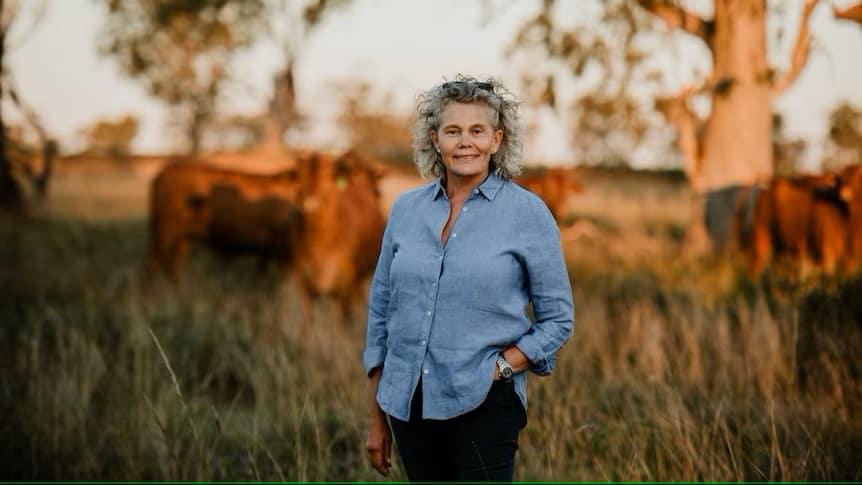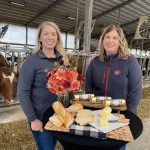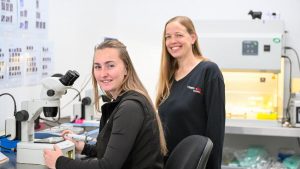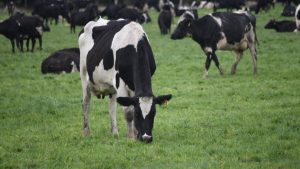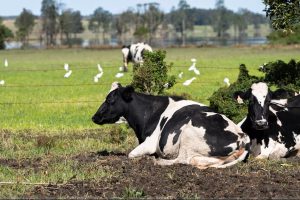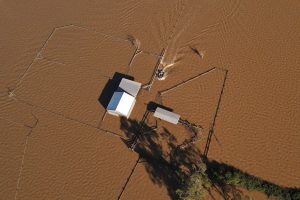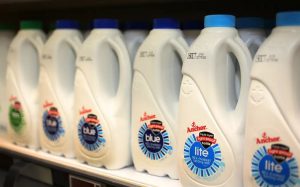
Women weren’t legally considered farmers until 1994 and, while progress has been made, they are still under-represented in leadership roles.
It is an issue National Farmers Federation (NFF) president Fiona Simson says she has been working on.
NFF runs a Diversity in Ag Leadership program that offers women mentoring and training.
Since its inception, the program boasts more than 50 alumni and more than 30 organisations that have partnered with them to make meaningful change towards gender diversity in the ag industry.
“We need to focus on the gaps — whether it’s gender pay gaps, whether it’s flexible work options, whether it’s working from home options,” Ms Simson says.
“Those are the sorts of issues our partners in our Diversity in Ag Leadership program are committing to fix.”
Ms Simson is the first female president in the NFF’s history.
After growing up on a farm near Armidale, NSW, she worked for businesses, local governments, and the NSW Farmers Association.
She says the NFF’s goal is to double the number of women in management roles in agriculture by 2030.
“[It] just brings a variety of thinking that is absolutely going to increase the options to industry,” she says.
And it is clear things are starting to change.
The latest women’s budget statement showed that in agriculture and environmental studies, female graduates were starting to out earn their male counterparts.
‘Be a support’
Georgie Somerset is the general president of AgForce, an organisation representing Queensland farmers, and is also a cattle grazier.
She has a long history of supporting rural women, and was a founding executive of the Queensland Rural, Regional and Remote Women’s Network in 1993.
It was only the following year that women in Australia could legally call themselves farmers.
Ms Somerset agrees with Ms Simson that encouraging more women into leadership roles is beneficial to the wider industry.
“Over 50 per cent of the population is female, so it’s crazy not to make sure that we’ve got lots of great women in agriculture who are also leading,” she says.
“Otherwise we miss out on the fabulous strategic thinking and practical knowledge those women have.”
Ms Somerset says it is important that people in roles such as hers identify future leaders.
“Really encourage them to take that step forward into leadership and then be there for them,” she says.
“Be a scaffold and be a support as they find their feet as our leaders of the future.”
She says a good leader is someone who brings teams along with them.
‘Need to represent ag’
Westpac Regional and Agribusiness national general manager Peta Ward says she aims to bring authenticity to her role.
“You need to bring your whole self to work every single day and people really respect leaders who are authentic,” she says.
Ms Ward studied agricultural science at university but pursued a career in the banking sector, working in agribusiness banking from 2004.
She has spent the past 16 years at Westpac.
She says the agricultural industry needs to embrace diversity to succeed.
Ms Ward says it is not easy to work towards a leadership position.
“All of us need to be supporting young women in their journey to leadership,” she says.
“If we all lean in and give them the scaffolding and support then we will have more leaders.”
Mentoring is key
Egg Farmers of Australia chief executive Melinda Hashimoto says she joined the organisation in 2020 after working as a political adviser.
She says it is vital the industry embraces female leaders to encourage more women to work in agriculture.
“Younger women can look up to them and see the kinds of roles they’re doing and aspire to do that as well,” she says.
Ms Hashimoto has publicly advocated for farmers as the egg industry navigates a major transition.
She says a good leader shows passion and resilience in their work.
“The people they work with will also foster that, it will rub off on them,” Ms Hashimoto says.
“A leader is also someone who should be quick to say thank you and appreciate the people they’re working with.”
Ms Hashimoto says mentoring is important to support younger leaders.
“Women can certainly mentor other women — they can have two-way mentoring to learn from one another,” she says.
“It’s a really good idea to have a male and female mentor to really help you along your journey.”
